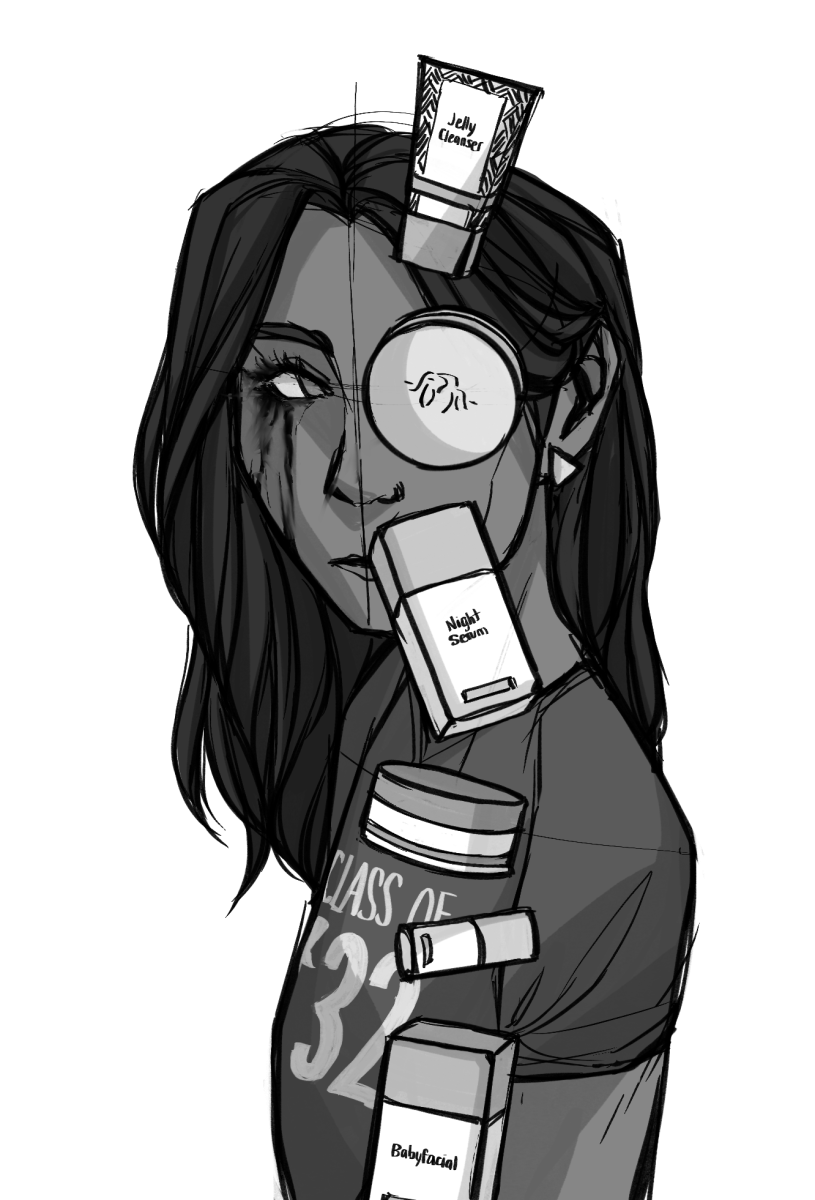Whether it is at Sephora or Ulta Beauty, preteens and children from Generation Alpha are buying out exfoliators, acids, retinol and other adult cosmetic products at a rapid pace. As a result, the risk of young girls using these products incorrectly and causing irreversible damage to their skin becomes increasingly prevalent.
According to “The ‘Sephora Kids’ Epidemic,” by Camryn Anderson, brands such as Drunk Elephant and Sol de Janeiro selling out to children for their colorful packaging and trendiness is an issue rooted in social media. An early interest in skincare, beyond face wash and sunscreen, perpetuates their eagerness to grow up and be like their favorite influencer.
Junior Arya Yadav finds Generation Alpha’s obsession with consumerism embedded in a desire to achieve a lifestyle that is not realistic for their age. As a result, she thinks they blindly follow trends online without careful consideration.
“Having the latest products and constantly buying new things, they want to live the rich lifestyle that’s easily gained from being an influencer,” Yadav said. “Drunk Elephant was trendy and everybody wanted it, so these kids played into it and kept buying it.”
Senior April Ngo believes young girls do not understand how undeveloped they are in comparison to the influencers they see online. Consequently, she thinks young girls do not understand cosmetic products look different on them in comparison to an older teenager or adult because they are still growing up.
“Their facial structure and their bodies, unfortunately, when they look at themselves in the mirror, they’re gonna see someone they don’t like because the person that they see on the screen is a full-grown adult, and that is not who they are at the moment,” Ngo said.
Similarly, senior Christine Parayno finds it problematic that children are not researching how cosmetics affect their skin, or seeking advice from a trusted adult. She believes the culture of overconsumption gives younger girls a sense of belonging with their friends and the people they look up to.
“They want to be like the older girls, so they’re going to try a new product without even seeing a dermatologist or parent,” Parayno said. “They don’t know if they are using the product properly, and most of it comes from the desire to fit in.”
Additionally, Yadav is concerned about Generation Alpha’s reliance on cosmetics to feel beautiful. She worries they will become concerned with their appearance at a young age, which could carry a lack of confidence and individuality into adulthood.
“If they start wearing makeup at an early age, they’ll believe they can’t go without it,” Yadav said. “They shouldn’t constantly spend their lives worrying about how they look and how they appear to other people. That’s usually a thing people only start experiencing later in their lives.”
While influencers get products through media engagement, advertisements, sponsors or even gifts, Parayno believes children are unaware of the financial contrast.
“The older generations they see on social media have jobs so they can afford whatever skincare or makeup they want. Kids see this and they want to afford their own skincare, but the problem is they’re using their parent’s money, and they’re not working for it,” Parayno said.
Math teacher Tracy McClennan sees young girls’ preoccupation with cosmetics as a result of the cosmetic industry’s marketing and business strategies. She finds makeup and skincare generally harmless as long as it does not replace other hobbies and passions for children.
“It’s important to realize that people are making money from this. Otherwise, it wouldn’t be out there,” McClennan said. “Like any trend, if you get hyper-focused on one thing to the detriment of having a variety of interests and things that you engage in, that’s not good.”
Despite the judgment Generation Alpha faces from older generations, Ngo expressed sympathy for the world they are growing up in. She believes children do not understand how psychologically damaging social media is becoming for young people, leaving them influenced without a choice.
“Many people will make fun of the girls who are going into Sephora, but it’s important to acknowledge that the shift in the language surrounding the beauty industry can be harmful because the normalization of plastic surgery, excessive skincare and excessive beauty routines can negatively impact these young girls,” Ngo said.
McClennan reciprocated the same kindness towards the vulnerability of young girls online. While children overconsume skincare and makeup they do not need, she believes brands target the innocence and naivety of Generation Alpha excessively.
“I know that young people are susceptible and are easy to influence. I think advertisers know that, so they go after them because they are more vulnerable to suggestion and peer pressure. It’s a little bit out of their control, which is unfortunate,” McClennan said.


